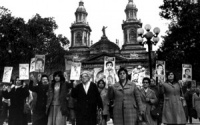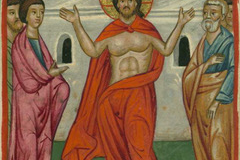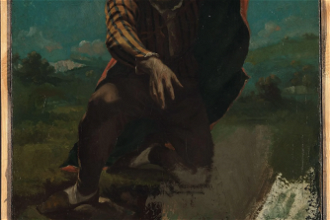Columban missionaries reflect on 40th Anniversary of Chile’s Coup

Vigil for the Disappeared
The fourtieth anniversary of the military coup in Chile that overthrew the democratic government of President Salvador Allende on 11th September 1973 was charged with memories, sentiments of disbelief, forgiveness, and reconciliation. There was a renewed cry from the families of the disappeared who still struggle to find out what happened to their loved ones and who was responsible for their disappearance. Also, the anniversary was an attempt to build up confidence in the civil and political institutions that have long being scarred by the events of the past.
Since the beginning of the month several television stations screened unedited film material that has been retrieved from the archives that brought to light pictorial evidence of torture, unlawful detentions and repression. This was a different anniversary from any other as it captured the consciences of the people, who felt they could now address the events of the past openly and without fear.
We Columbans remembered and called to mind the memory of the 40th anniversary and the seventeen years of military dictatorship that we lived through both in our parish celebrations and our participation in the events that marked this significant event in the recent history of Chile.
An ecumenical service - organised by the Columban Justice, Peace and Integrity of Creation Office, the ecumenical coalition and religious congregations - took place on the evening of 11th September in the Franciscan Church in Santiago’s city centre. Several hundred people participated, among whom were priests, religious sisters and lay people well known for their defence of human rights and condemnation of torture. There was also a notable presence of young people, especially seminarians from religious congregations, and many people from other Latin American countries.
After the service, a man in his late 50s approached a Columban and expressed his thanks, he said: “I want to thank you Columbans for saving my life and many of my comrades, you opened your doors to the MIR (Movimiento Izquerda Revolucionaria) in Barancas, San Antonio and we have never forgotten that; you saved us from torture and possible death, you had patience with us while others were organising ways to get us out of the country” and the man bent down and wept.
After the ecumenical service our co-workers in the Mission Center went around the corner to Londres no.38, which was a house of torture in the days following the military coup and for several years afterwards. There we joined the group in silence as flowers and candles were placed in memory of the dead and disappeared.Justice and Peace was at the heart of Columban ministry and pastoral work throughout the seventies and eighties, and remains so. We were known to be on the side of the poor and the victims of the military regime, and a voice for justice and Human Rights throughout the years of the military dictatorship. Along with the Columban priests and sisters, a significant number of the Columban group in Chile was made up of Associate priests from dioceses in Ireland, USA, England, Scotland, Australia and New Zealand. Later, there were lay missionaries who also moulded themselves into the Columaban way of life in solidarity with the poor and victims of injustices.We coordinated our efforts with the Vicariate of Solidarity, which was set up by the then Cardinal Archbishop of Santiago, Raúl Silva Henriquez.
Throughout the 17 years of military dictatorship we provided soup kitchens (comedores), shared meals (olla communes) and cooperate buying (comprando juntos) in all four Columban parishes and communities. Today we continue to provide this service for elderly people and university students in some of our parishes. We participated actively in the monthly meeting of the Pastoral Obrera (workers vicariate), which dwelt on an analysis of the reality we were living under the military dictatorship and our response to situations in our parishes and communities.
During the years of the military dictatorship, the Columbans put in place a viable pastoral program in each of the parishes. We inserted ourselves into the local church, worked the Pastoral Plan and participated actively in deanery, zone and diocesan events. We implemented the catechetical program, set up Basic Christian Communities and solidarity groups. We became involved in youth ministry both at local parish level and diocesan level and contributed to the process of education in the faith of many young people. This involved us in the National Institute of Youth Ministry. Our work in the “poblaciones” (deprived social housing areas) resulted in the formation of a generation of lay people in leadership skills, social and political involvement, and empowerment of the poor building up their self-esteem and human dignity.
This was not without a price. We were subjected to military terrorism when our Center House was stormed on 1st November 1975 which resulted in the assassination of our housekeeper, Henriquetta Reyes and the detention and subsequent torture of our guest Sheila Cassidy, an English medical doctor. Sheila was later expelled from Chile and the British labour government broke off diplomatic relations with Chile and withdrew their Ambassador. Full diplomatic relations was not restored till Margaret Thatcher came to power in Britain. Every year, the Columbans continue to celebrate the anniversary of Henriquetta Reyes. No one has ever been charged for this act of terrorism. Today one of the bullet holes on the wall of the Center House is preserved in memory of this tragic event.
As Columbans, we experienced the detention and expulsion of three Associate priests working in the early 1980s, Brian McMahon, Des Macgillicuddy and Brendan Ford, and later the expulsion of Denis O´Mara for his involvement in the anti-torture movement, Sebastian Acevedo. This movement was created by priests, sisters and committed lay people to publicly denounce the use of torture by the military regime. Several Columbans were influential and participated actively in the movement. It took its name from Sabastian Acevedo who burnt himself alive in front of the cathedral of Concepcion as his son was being tortured by then secret police.
During those years we were often watched with suspicion by the authorities. Some Columbans had their permanent visas revoked or made to renew their visas on a regular basis. Several of our parishes were searched at various times during the military government, the most prominent being the parish of San Gabriel in 1988, shortly before the plebiscite in October 1989 that gave way for a return to democracy and an end to the military dictatorship.Democracy returned to Chile in March 1991 and Columbans have been active in these years of transition. We have maintained close ties and identify ourselves with the Church of the poor.
We continue to minister in the most underprivileged areas of the city. We work closely and network with other religious groups who are committed to social justice and accompanying the victims of Human Rights abuses. Chile in recent years has in no way been exempt from the impact of globalisation and consumerism and it has made its impact on the lives of many people who are struggling for a better quality of life. There has been a shift from a community outlook on life to a more individualistic one, an aspect that has also impacted on the Church.Chile is a changed country and people are much better off, but the wounds left by years of military dictatorship have yet to be healed. While we continue to live under Pinochet’s Constitution of 1980 and the political and economic structures that were put in place during those years (privatisation of water, education, mining and labour laws, anti-terrorist laws) there is little basis a more society.
All these structures and laws form the root causes for much of the social unrest and inequality today. It is only 23 years since the end of military regime and memories are still very raw. Columbans contribute both by their presence and joining other voices towards bringing about healing and reconciliation.
Chile is one of the sixteen countries where Columbans work. See: www.columbans.co.uk.


















